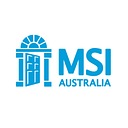End of an era for decentralised surgical abortion care

2021 is a momentous year for sexual and reproductive health rights in Australia. Despite the decriminalisation of abortion care, abortion access remains a postcode lottery. Without adequate investment in abortion care, we have reached an inevitable point where regional abortion clinics need to close.
Throughout the COVID-19 pandemic doctors, nurses, midwives, social workers, counsellors and administrators have worked tirelessly to maintain access to abortion care. The pandemic has highlighted and reinforced long term systemic issues of access and equity, particularly for people on temporary visas. We have seen evolving models of care, travel funds to maintain regional access, and collaborative advocacy efforts across sectors.
The Choice Fund is a philanthropic fund that has in the past two years provided in excess of $850,000 worth of contraception and abortion services for women and pregnant people experiencing financial hardship. During the pandemic, the number of regular Choice Fund donors, philanthropists, and the size of their donations has dramatically reduced. For the first time in many years, we have had to turn away women and pregnant people experiencing financial hardship who cannot afford to access their choice of healthcare.
Governments continue to invest in referral services without any significant or long term investment in the provision of abortion care. These referral services subsequently act as financial counsellors, travel agents and patient advocates. They are paid to support people through barriers to an essential health procedure that is a fundamental human right.
Communities can no longer bridge systemic gaps in healthcare access. Evidence shows the detrimental impacts of being turned away from abortion care. Women and pregnant people need access to both medical and surgical abortion choices, alongside contraceptive choices. In regions where public health and hospital services do not provide abortion care, public funds must cover the actual cost of surgical abortion provision.
This week we announced the closure of four regional clinics. These are the Newcastle clinic in New South Wales, and the Southport, Rockhampton and Townsville clinics in Queensland. All four clinics are day procedure services; meaning they provide both medical and surgical abortion care alongside contraceptive care. This is not a decision we have made lightly. We have exhausted all possible options and extended our tenure for as long as we could. In a pandemic and without adequate funding streams, these clinics are not financially viable.
Across our clinic network, we have 350 courageous staff and contractors who are committed to providing essential healthcare in Australia. In the past year alone they have worked through medication delays, PPE shortages, fluctuating movement restrictions, delayed access to care and presentations of reproductive coercion. They continue to provide safe and quality sexual and reproductive healthcare for all members of our local communities.
These four clinic closures mean that 49 people are currently working in roles that will be either be repurposed or made redundant. While some will move into other roles at Marie Stopes Australia, others will be supported to move onto other roles in the health sector. We offer our humble gratitude and appreciation for their dedication to community care in Newcastle, Southport, Rockhampton and Townsville and their surrounding regions.
It is the end of an era; in coming months both Queensland and New South Wales will further centralise abortion care. At Marie Stopes Australia we will continue to work with health and hospital services to transition care options and patient pathways in these regions. We will continue to provide access to non-judgmental pregnancy options counselling. In Queensland, we will continue to engage patient travel schemes to support access to abortion care in metropolitan centres. In New South Wales, we will continue to work with women’s health services that support regional and rural healthcare equity.
As a non-profit and non-government organisation, we will take time to pause and consider our strategy from here. We continue safety and quality in clinical care in our centralised Brisbane, Canberra, Melbourne, Perth, Sydney and Teleabortion clinics. In coming months, we will extend our Teleabortion service to include South Australia, and for the first time in history virtual care for medical abortion will be national.
We are extremely proud to work alongside our valued colleagues to maintain sexual and reproductive health rights across Australia. We call for ongoing cross-sector collaboration, support and action. We must ensure that every woman or pregnant person can experience bodily autonomy, regardless of whether they live in metropolitan, regional, rural or remote areas. Every person must have the power to make informed choices about their own healthcare, bodies, and lives.
Jamal Hakim is the Managing Director at Marie Stopes Australia. He currently holds several board appointments, including with Democracy in Colour, MS Health Pty Ltd and Marie Stopes Papua New Guinea. In 2020, Jamal was elected as a Councillor for the City of Melbourne. You can follow Jamal on Twitter.
Dr Philip Goldstone is the Medical Director at Marie Stopes Australia. He played a key role in bringing medical abortion to Australia and has been published widely on contraception and abortion care. Philip is responsible for ensuring we deliver safe and high-quality care that meets best practice standards and chairs the Marie Stopes Australia National Medical Advisory Committee.
